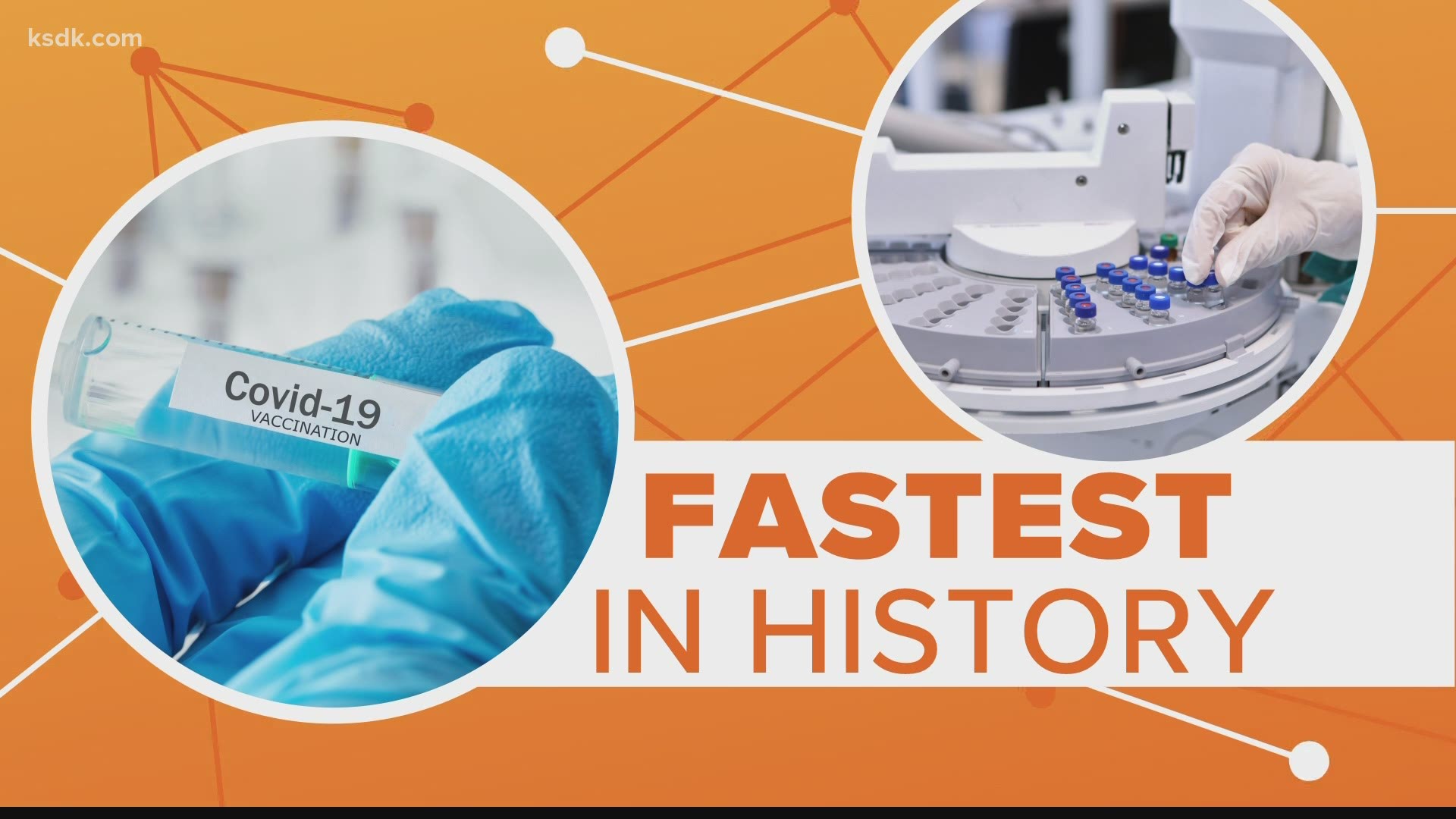ST. LOUIS — It might feel like we've been waiting forever for a COVID-19 vaccine. Imagine having to wait four years for one.
That's how long it took to develop the mumps vaccine. Before the coronavirus, that was the fastest one to ever be developed. So – in a way – we're lucky, and researchers may have had a leg up on this vaccine.
The science and medical fields were first alerted to the new coronavirus in December 2019 when a cluster of cases were reported in Wuhan, China. The first U.S. case was reported a month later in Washington state on January 20, 2020.
The World Health Organization didn't characterize COVID-19 as a pandemic until March and work on a vaccine began shortly after. Fast forward nine months, Pfizer announced its vaccine is 90% effective and could get to health care workers in December.
It's been a remarkable race for researchers, but scientists did have a slight advantage with this one. They were able to use past research on SARS and MERS vaccines to get started. Not to mention the entire science community across the globe is coming together to create a vaccine as soon as possible.
Early predictions said it would take 12-18 months and if Pfizer's and others in the pipeline stay on track, the COVID-19 vaccine will become the fastest created in history.
On Thursday, federal health officials announced they reached an agreement with pharmacies across the U.S. to distribute free coronavirus vaccines after they are approved and become available to the public.
The goal eventually is to make getting a COVID-19 vaccine like getting a flu shot.

